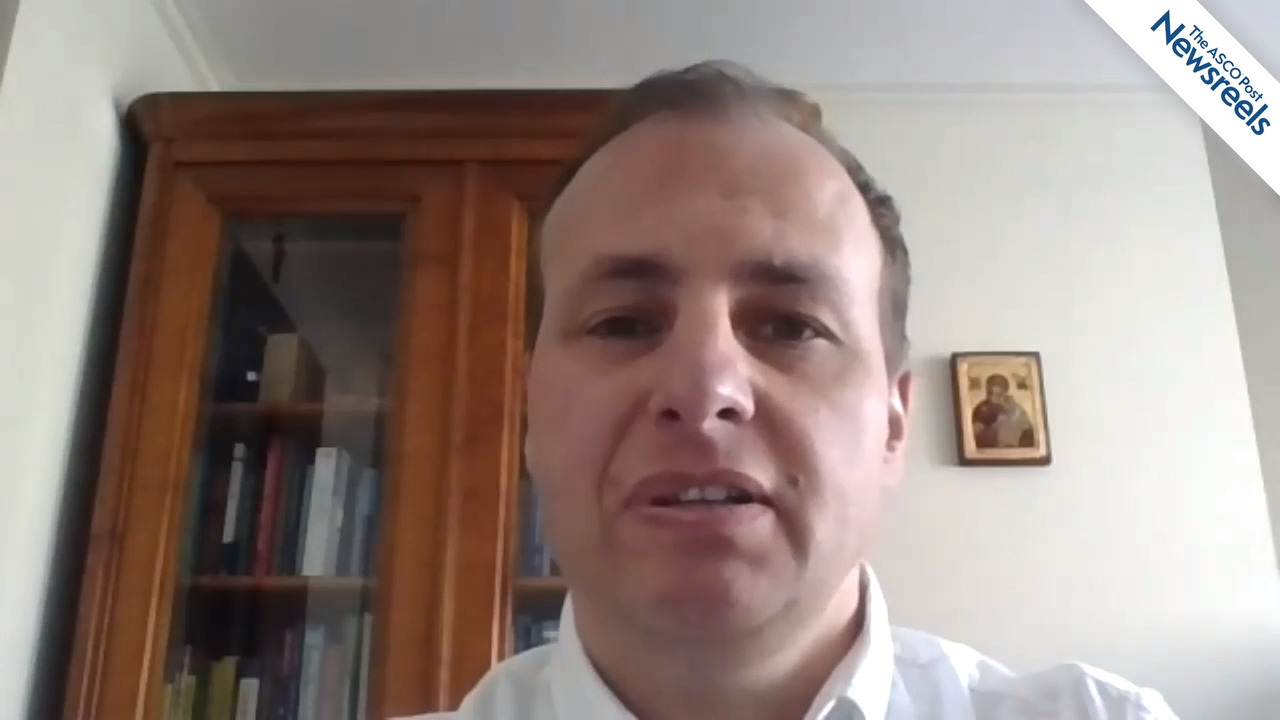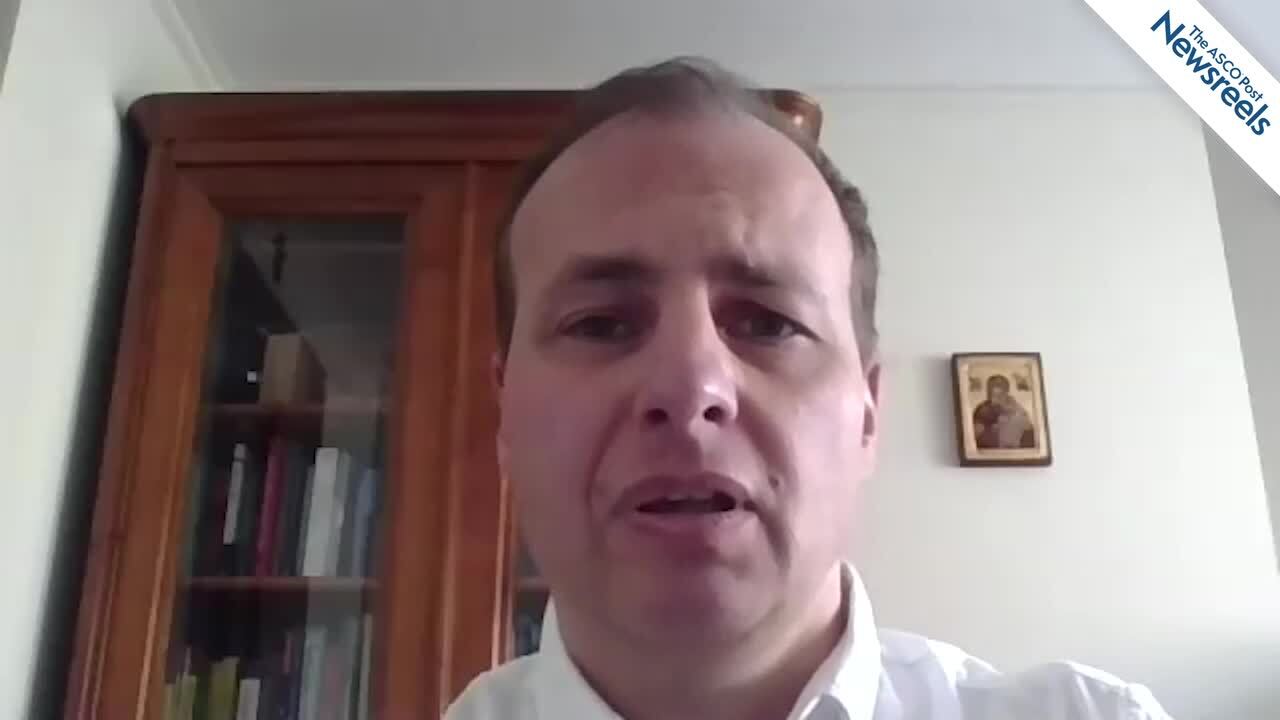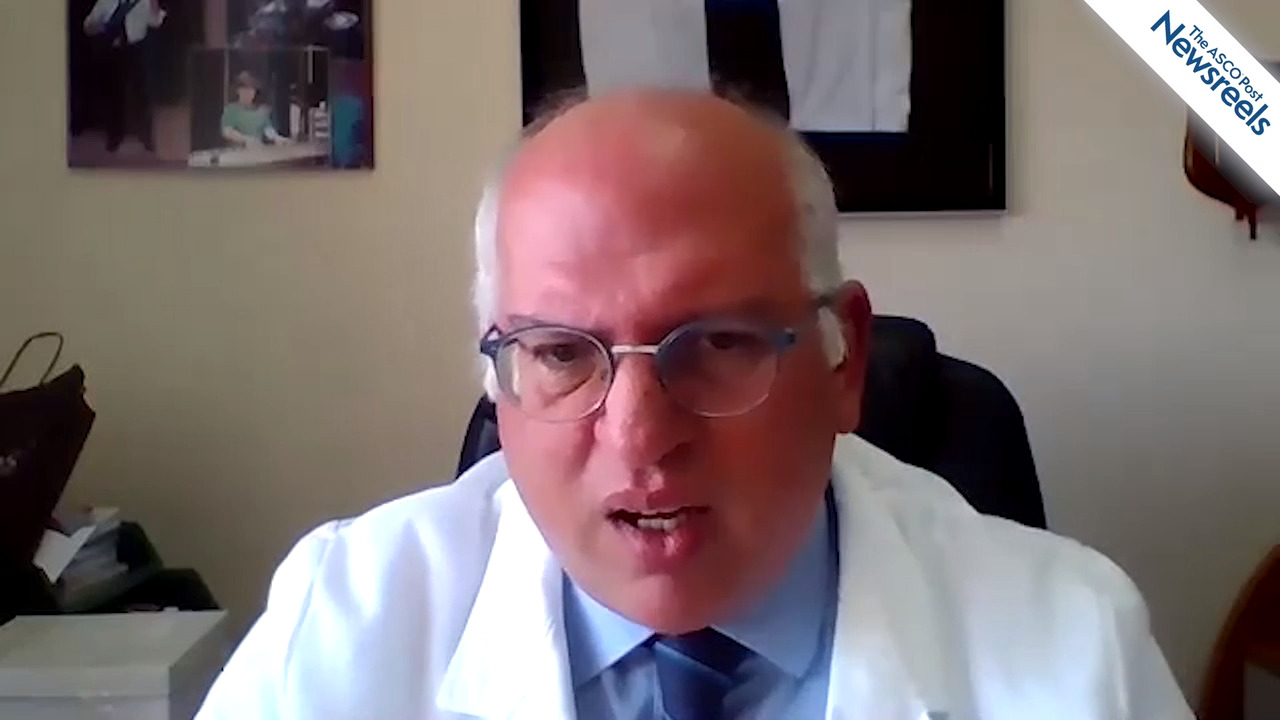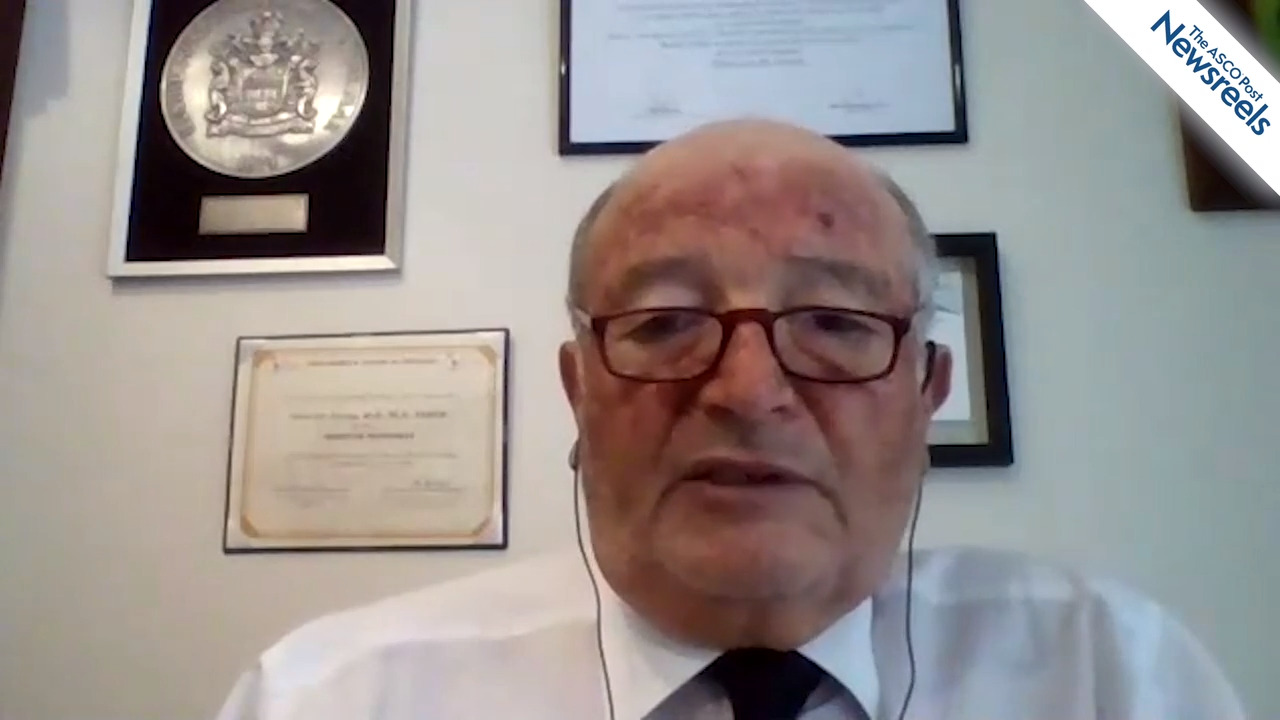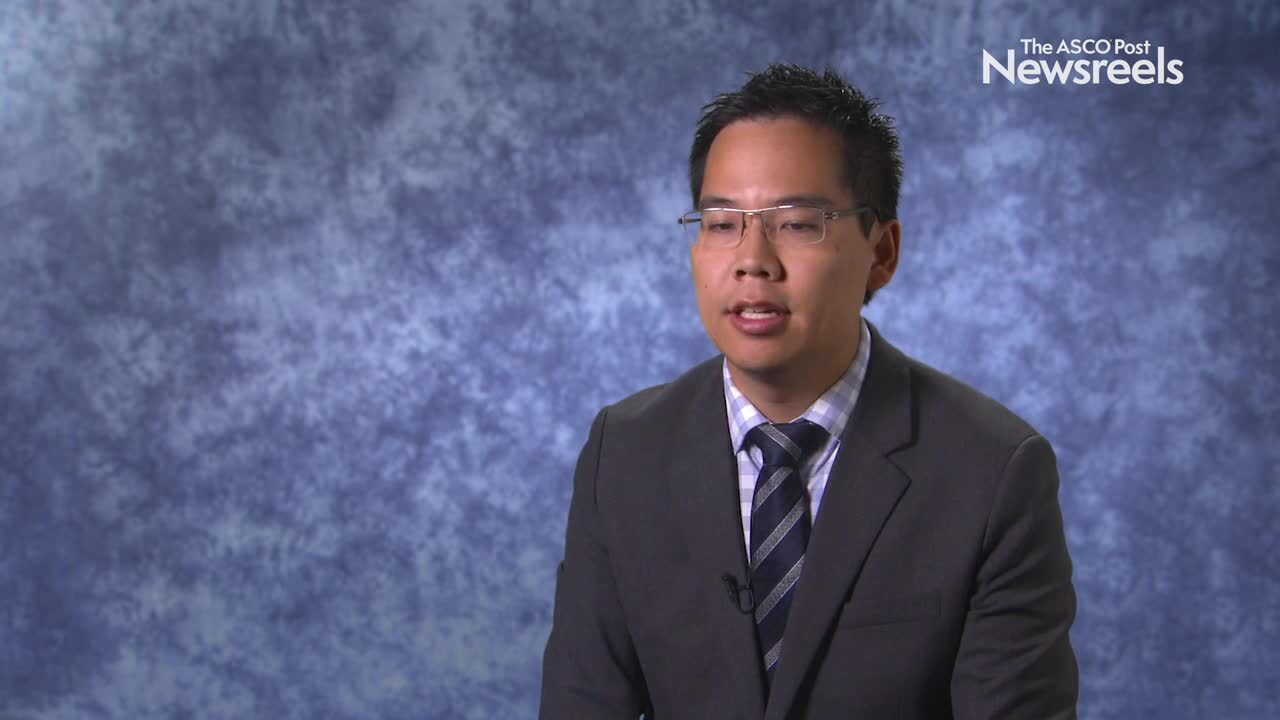Estimated Global Demand for Cancer Surgery and Its Associated Workforce Over the Next 2 Decades
A modeling study of global demand for cancer surgery and estimated surgical and anesthesia workforce requirements between 2018 and 2040 showed a predicted increase, which could especially impact low-income countries. These findings were published by Perera et al in The Lancet Oncology. Study...
Indian Surgical Oncologist Offers Insights Into Delivering Equitable Cancer Care in a Resource-Challenged Country
The ASCO Post is pleased to introduce this department on Global Health-Care Equity. On an occasional basis, we will publish interviews between Guest Editor, Chandrakanth Are, MBBS, MBA, FRCS, FACS, and another oncologist or cancer care specialist spanning regions around the world. Our goal is to...
ASCO’s New Chief Medical Officer Plans to Tackle the Global Burden of Cancer and Disparities in Access to Care
In November, ASCO announced that Julie R. Gralow, MD, FACP, FASCO, will succeed Richard L. Schilsky, MD, FACP, FSCT, FASCO, as Chief Medical Officer (CMO) of the Society. Dr. Gralow will begin her new position on February 15, 2021. Dr. Gralow’s long relationship with ASCO dates back to 1995, when...
Cancer on the Global Stage: Incidence and Cancer-Related Mortality in Burkina Faso
The ASCO Post is pleased to continue this occasional special focus on the worldwide cancer burden. In this issue, we feature a close look at the cancer incidence and mortality rates in Burkina Faso. The aim of this special feature is to highlight the global cancer burden for various countries of...
Global Burden of Cervical Cancer and Association With HIV
A research team has quantified the effects of infection with the human immunodeficiency virus (HIV) on the development of cervical cancer. Their results show that the risk of developing cervical cancer is six times higher in women who are infected with HIV, and that women who live in Southern and...
GLOBOCAN 2020 Database Provides Latest Global Data on Cancer Burden, Cancer Deaths
On December 15, the International Agency for Research on Cancer (IARC) released the latest estimates on the global burden of cancer. The GLOBOCAN 2020 database, accessible online as part of the IARC Global Cancer Observatory, provides estimates of incidence and mortality in 185 countries for 36...
European Experts Tackle HPV-Related Cancers
The prevention of infection with the human papillomavirus (HPV), and its related cancers, has become a focus of the European Cancer Organisation. At the group’s 2020 European Cancer Summit, held virtually, members of the organization’s HPV Action Network convened with other experts to share...
Panel on Global Cancer Control Looks for Ways Forward in a War That’s Proving Hard to Win
Are we winning the war on cancer? It’s not so clear, especially with COVID-19 poised to erase recent gains, panelists said at a session on global cancer control at the 2020 European Cancer Summit, which was sponsored by the European Cancer Organisation. “We know what we have to do. My question is...
Addressing Inequality in Cancer Care on a Global Scale
It has become a familiar theme of late: Inequities exist in all aspects of cancer care. Although study after study documents problems with access to care and poorer cancer outcomes among underrepresented groups, less is heard about organized efforts to address these issues. This critical topic was...
Cancer on the Global Stage: Incidence and Cancer-Related Mortality in Colombia
Colombia is located in the northwestern corner of South America, geographically privileged with coasts on both the Atlantic and Pacific Oceans, the Andean region, and the Amazon rainforest. Based on its population of nearly 50 million (see Table 1), Colombia is the second largest country in South...
Assessing the Progress Made in Global Cancer Care and Looking Toward the Future
In October 2020, Her Royal Highness Princess Dina Mired of Jordan ended her 2-year tenure as President of the Union for International Cancer Control (UICC), a global organization with more than 1,198 members from 172 countries and territories committed to reducing the cancer burden and...
Cancer on the Global Stage: Incidence and Cancer-Related Mortality in Chile
Chile has a population of approximately 19 million living predominantly in urban areas (87.7%), with a population density of 66 inhabitants per square mile.1 For the year 2020, approximately 12% of its population was older than 65 years.1 Socioeconomic Trends and Cancer The country has experienced ...
Cancer in My Community: Caring for Children With Cancer in Armenia
Cancer in My Community is a Cancer.Net Blog series that shows the global impact of cancer and how providers work to care for people with cancer in their region. Why I Care for People With Cancer When you tell someone that you are a pediatric oncologist and treat children with cancer, the first...
Cancer on the Global Stage: Incidence and Cancer-Related Mortality in Botswana
The ASCO Post is pleased to continue this occasional special focus on the worldwide cancer burden. In this issue, we feature a close look at the cancer incidence and mortality rates in Botswana. The aim of this special feature is to highlight the global cancer burden for various countries of the...
Cervical Cancer Screening and Prevention in Low- and Middle-Income Countries: 2020
Cervical cancer is a worldwide public health problem. The incidence of the disease is particularly high in low- and middle-income countries, where low coverage of prevention strategies and high risk of infection persist. To reduce morbidity and mortality, improved screening and prevention are...
Simple Rapid Vinegar Screening Test Cuts Cervical Cancer Death Rates by One-Third in Rural India
In 2013, at the ASCO Annual Meeting Plenary Session, it was both surprising and encouraging in the era of personalized medicine for cancer care to hear about a simple low-tech intervention delivered by women in the community that cut the rate of death from cervical cancer in India by about...
Cancer on the Global Stage: Incidence and Cancer-Related Mortality in Cambodia
The ASCO Post is pleased to continue this occasional special focus on the worldwide cancer burden. In this issue, we feature a close look at the cancer incidence and mortality rates in Cambodia. The aim of this special feature is to highlight the global cancer burden for various countries of the...
UICC Applauds WHO Global Strategy on Eliminating Cervical Cancer as a Public Health Problem
The Union for International Cancer Control (UICC) lauded the adoption of the World Health Organization’s (WHO) global strategy toward eliminating cervical cancer as a public health problem. WHO Member States adopted the strategy alongside other health resolutions as part of the silence procedure...
Impact of the COVID-19 Pandemic on Pediatric Cancer Care in Latin America
In a commentary published in The Lancet Oncology, Vasquez et al presented results of a survey of pediatric oncologists/hematologists across Latin America, which showed an adverse early impact of the COVID-19 pandemic on pediatric cancer care. Study Details The study included a cross-sectional...
Cancer Care at Tata Memorial Centre During the COVID-19 Pandemic
In correspondence published in The New England Journal of Medicine, two practitioners from Tata Memorial Centre, India’s largest cancer center, describe measures taken to continue providing cancer care during the COVID-19 pandemic in India. As related by the authors, scaling back of operations at...
Global COVID-19 Observatory and Resource Center for Childhood Cancer
St. Jude Children’s Research Hospital, in partnership with the International Society of Paediatric Oncology (SIOP), has launched the Global COVID-19 Observatory and Resource Center for Childhood Cancer. The website offers health-care providers around the world a space to share the latest...
Rafal Dziadziuszko, MD, PhD, on Using Telemedicine During the Pandemic: Experience in Poland
Rafal Dziadziuszko, MD, PhD, of the Medical University of Gdansk, talks about the adjustments to cancer care that he and his colleagues have made, how and when they employ telemedicine, and whether the technology could change the future for clinical practice. Filmed April 24, 2020.
Rafal Dziadziuszko, MD, PhD, on Helping Ease Oncology Patients’ Fears of Contracting COVID-19
Rafal Dziadziuszko, MD, PhD, of the Medical University of Gdansk, discusses the concerns his patients with cancer have about exposure to COVID-19 when they come to his institution for care and how he manages their fears. Filmed April 24, 2020.
Jacek Jassem, MD, PhD, on Fighting COVID-19 and Cancer: The View From Poland
Jacek Jassem, MD, PhD, of the Medical University of Gdansk, and an international editor on The ASCO Post Editorial Board, talks about the situation in Poland, how his institution is coping, and the adjustments the staff has made to deliver quality cancer care. Filmed April 17, 2020.
Paolo A. Ascierto, MD, on Cancer Treatment During the COVID-19 Pandemic: The View From Southern Italy
Paolo A. Ascierto, MD, of the Istituto Nazionale Tumori in Naples, Italy, talks about minimizing risks for patients with cancer, prioritizing surgery and other treatments for melanoma, and the state of clinical trials. Filmed April 17, 2020.
Giorgio V. Scagliotti, MD, PhD, on the Oncoming Waves of COVID-19: Italy’s Experience
Giorgio V. Scagliotti, MD, PhD, of the University of Turin, talks about the progression of COVID-19 through his community and how, in nursing homes, lack of experience dealing with a pandemic is fueling a third wave of the virus in Italy. Filmed April 15, 2020.
Giorgio V. Scagliotti, MD, PhD, on the Ongoing Battle Against COVID-19: Update From Italy
Giorgio V. Scagliotti, MD, PhD, of the University of Turin, talks about the ways in which coronavirus reshaped Italian hospitals, mistakes made, and lessons learned. Filmed April 15, 2020.
Eduardo L. Cazap, MD, PhD, on COVID-19: The View From South America
Eduardo L. Cazap, MD, PhD, of the Sociedad Latinoamericana y del Caribe de Oncología Médica, and an international editor on The ASCO Post Editorial Board, talks about the situation in Argentina treating patients with COVID-19, and the 10-country research effort led by the World Health Organization seeking to fast track research on the coronavirus. Filmed April 7, 2020.
Pediatric Cancer Investment Needs and Benefits: Findings From a Commission Created by The Lancet Oncology
Improving care for children with cancer worldwide could bring a triple return on investment and prevent millions of deaths, according to a new Commission report published by Atun et al in The Lancet Oncology. Without additional investment in childhood cancer care, new estimates produced for the...
Gynecologic Cancer Screening After a Natural Disaster
Cervical cancer screening rates were significantly affected in the years following the Great East Japan Earthquake of 2011, according to a report published by Miki et al in PLOS ONE. “Conflicts and disasters, and the social isolation that often follows, have a major impact on health care and lead...
Trends in Global Rates of Liver Cancer From 1990 to 2017
New research published by Liu et al in the journal Cancer has revealed rising rates of liver cancer around the world, despite advances aimed at preventing the disease; however, some steps towards alleviation have been made due to control of hepatitis. Methods To obtain trends and estimates of liver ...
Giuseppe Curigliano, MD, PhD, on How COVID-19 Is Affecting Cancer Care: The View From Italy
Giuseppe Curigliano, MD, PhD, of the University of Milan, talks about how, in the face of the coronavirus pandemic, he and his fellow oncologists have altered the way they treat patients with cancer. Filmed March 24, 2020.
International Uptake of Molecular Testing Across Tumor Types: Analysis of Eight Countries
In a study reported in JCO Oncology Practice, Chambers et al found that use of molecular testing across tumor types often varied widely in several countries, sometimes reflecting regional differences in the incidence of cancer types. Study Details The study involved the use of aggregated results of ...
Trends in Lung Cancer Incidence in Young Women vs Young Men Across 40 Countries
In a systematic analysis of data from 40 countries reported in the International Journal of Cancer, Fidler-Benaoudia et al identified a widespread emergence of higher lung cancer incidence rates in young women vs young men. The trend does not appear to be explained by differences in smoking...
WHO, IARC Release Reports in Response to Government’s Role in Cancer Control
The World Health Organization (WHO) and the International Agency for Research on Cancer (IARC) released two coordinated reports in light of World Cancer Day in response to government calls for more research into the scope and potential policies and programs to improve cancer control. WHO Report...
World Cancer Day 2020: 20th Anniversary of the Global Initiative
Today’s World Cancer Day, led by the Union for International Cancer Control (UICC), aims to mobilize urgent action from individuals, governments, and the global cancer community to close gaps in cancer risk awareness between higher and lower socioeconomic groups and the subsequent impact on their...
Taking Action Against Cancer: Celebrating 20 Years of World Cancer Day
February 4, 2020, will mark the 20th anniversary of World Cancer Day, an annual event meant to raise cancer awareness and encourage governments, oncology societies, nongovernmental organizations, businesses, and individuals to take action against the global impact of the disease. Formed in...
Thermal Ablation vs Cryotherapy or Loop Excision in Zambian Women Positive for Cervical Precancer
In the pilot phase of an ongoing randomized trial reported in The Lancet Oncology, Pinder et al found that thermal ablation and cryotherapy produced similar treatment success rates in Zambian women positive for cervical precancer on visual inspection with acetic acid. The investigators noted that...
New Alliance Established to Help Improve Cancer Care in Sub-Saharan Africa
IBM, the American Cancer Society (ACS), the National Comprehensive Cancer Network® (NCCN®), and the Clinton Health Access Initiative (CHAI) recently announced a new alliance—Allied Against Cancer—to help improve access to high-quality cancer care and treatment in Sub-Saharan Africa. The Alliance...
Affirming Universal Health Care as a Fundamental Human Right
This year’s meeting of the World Cancer Leaders’ Summit: Cancer and Universal Health Coverage, held on October 15–17 in Nur-Sultan, Kazakhstan, brought together more than 350 global health leaders, including ministers of health, first ladies, and industry leaders, from 82 countries to discuss how...
Challenging the Global Community to Deliver Equitable Cancer Care for All
For Her Royal Highness Princess Dina Mired of Jordan, ensuring that every patient with cancer receives high-quality care is not an abstract goal—it is personal. Princess Dina saw firsthand the life-and-death differences that access to state-of-the-art oncology care makes in a patient’s life when...
Global Burden of Pancreatic Cancer From 1990–2017
The incidence and mortality rates of pancreatic cancer have increased in 195 countries and territories over a 27-year period, according to a systematic analysis performed within the Global Burden of Disease Study 2017 and published in The Lancet Gastroenterology & Hepatology. The study is the...
Cancer Survival, Incidence, and Mortality in Seven High-Income Countries From 1995–2014
As reported by Arnold and colleagues in The Lancet Oncology, the International Cancer Benchmarking Partnership Cancer Survival in High-Income Countries (SURVMARK-2) project has found general improvement in cancer survival between 1995 and 2014 in Australia, Canada, Denmark, Ireland, New Zealand,...
Canadian Cancer Organizations Team Up to Focus on New Approach to Metastatic Breast Cancer
At a press conference at McGill University, Stand Up To Cancer Canada (SU2C Canada), the Canadian Cancer Society (CCS), and the Canadian Institutes of Health Research (CIHR) announced the launch of the SU2C Canada Metastatic Breast Cancer Dream Team to pursue the development of a new drug...
Michael Kenneth Keng, MD, on an ASCO Quality Training Program: 5-Year Review
Michael Kenneth Keng, MD, of the University of Virginia, gives a status update on this international program, and discusses future initiatives which include coaching mentorship and publishing articles on quality care (Abstract 7).
Global Burden of Pediatric and Adolescent Cancer in 2017
A recent analysis looked at the global burden of pediatric cancer through the lens of years of affected and lost life. This work shows a much greater burden of childhood cancer, placed largely in low- and middle-income countries, than previous estimates. The findings were published in The Lancet...
WHO Releases Report on the Global Tobacco Epidemic
Many governments are making progress in the fight against tobacco, with 5 billion people today living in countries that have introduced smoking bans, warnings on packaging, and other effective tobacco control measures—four times more people than a decade ago. However, a new World Health...
Automated Breast Cancer Detection Assay Using Fine-Needle Aspiration May Aid Patients in Developing Countries
A new laboratory test developed to identify chemical changes to a group of cancer-related genes may be able to accurately detect which breast tumors are cancerous or benign. Such a test could result in a more timely diagnosis of breast cancer for women in developing countries with less access to...
How the ASCO Breakthrough Global Summit Is Bringing Together Innovators to Transform Cancer Care
Earlier this year, ASCO announced plans for its first-ever international meeting, ASCO Breakthrough: A Global Summit for Oncology Innovators, which will be held October 11–13, 2019, in Bangkok, Thailand. The meeting is a joint effort by ASCO and the Thai Society of Clinical Oncology to bring...
Experience the Next Breakthrough in Cancer Care
On the heels of the ASCO Annual Meeting in Chicago, ASCO is working with leading oncology societies in Thailand, China, Japan, South Korea, and others to convene the world of oncology in Asia. It has been my privilege to serve as Chair of the Co-Host Committee for ASCO’s newest and groundbreaking...
